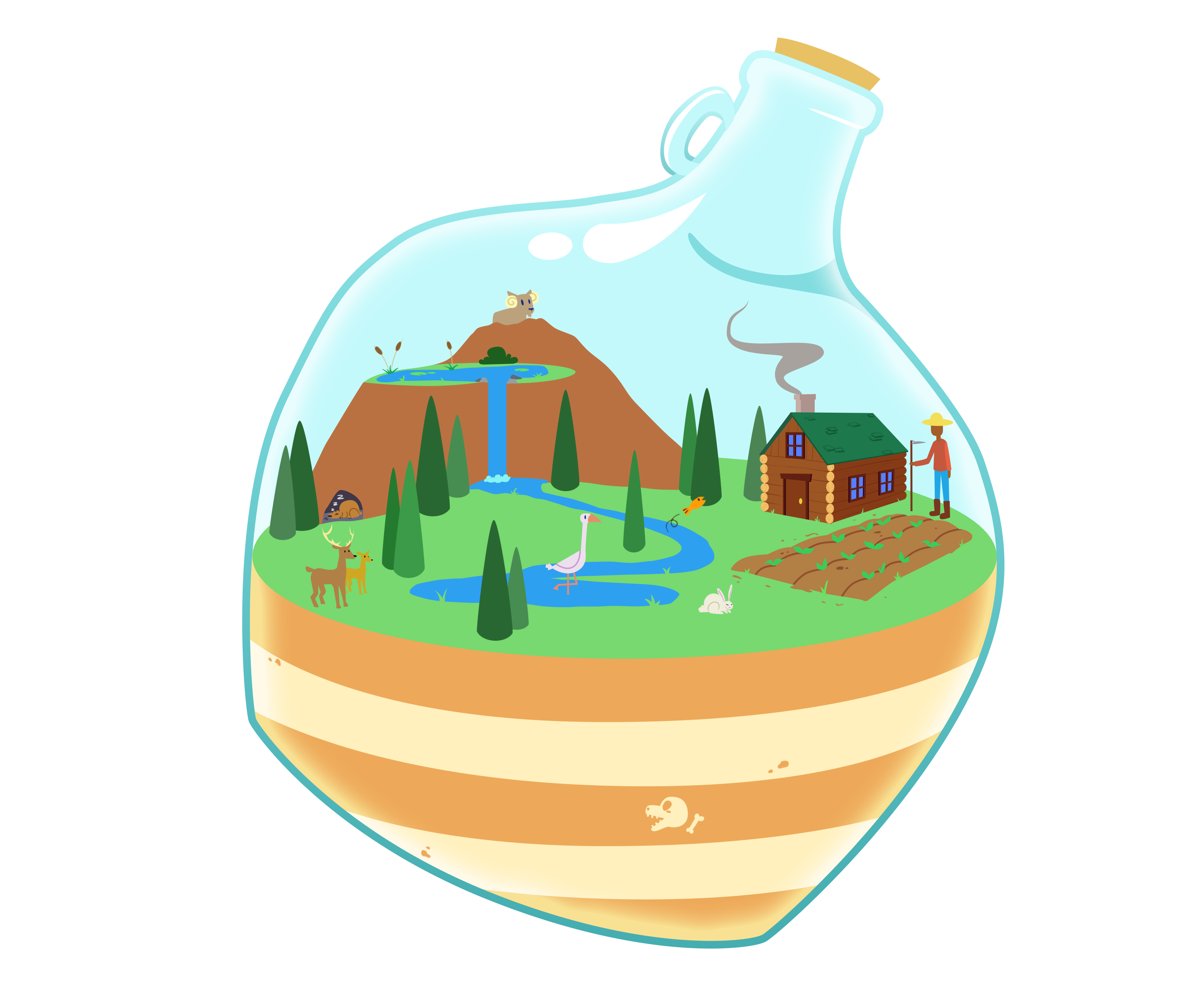
Writing Paragraphs With Evidence and Reasoning
Grade Level
To support students' ability to write persuasive essays, this lesson will scaffold aspects of argumentation through paragraph development. Students will first review the use of evidence and reasoning to support a claim by performing a CER analysis of a comic strip. Next, students will work both collaboratively... Read more »
Writing Paragraphs With Evidence and Reasoning
Subject
Course
Grade Level
Standards

Students will activate prior knowledge and make connections to the post-WWII era in America by looking at images from the time period. In addition, students will read poems that depict contrasting points of view from the decade (the point of view of an American versus a Holocaust survivor resettled... Read more »
Characterization
Subject
Grade Level
Standards

Metaphors and theme are difficult, yet integral, parts of literature. In this poetry analysis lesson, students will read "A Noiseless Patient Spider" by Walt Whitman. To begin the lesson, students will personally connect with the narrator of the poem by correlating the idea of fortitude and chance to... Read more »
Poetry Analysis: Theme and Metaphor
Grade Level
Subject
Course
Standards

What does the raven really mean? In this lesson, students analyze Edgar Allan Poe’s "The Raven" to uncover the meaning behind its iconic symbol. Then, they create free verse poems, using symbolism to express themselves. Read more »
Symbolism in Edgar Allan Poe's "The Raven"
Subject
Grade Level
Related
Standards

In this lesson, students will closely examine the social problems that emerged in American society as a result of industrialization. Students will interpret and evaluate primary sources from the early 20th Century to understand how photography and journalism exposed desperate social conditions and political... Read more »
Key Figures in the Progressive Movement
Grade Level
Subject
Course
Standards

Using Indirect Measurements to Determine Mole Ratios
Grade Level
This lesson validates the concept of mole to mole ratios within a chemical equation. It is a lab that uses an indirect variable (in this case, temperature change) to determine optimal ratios of reactants, thus the ratio of reactants that create the most products (which is the mole to mole ratio). This... Read more »
Using Indirect Measurements to Determine Mole Ratios
Grade Level
Subject
Course
Standards

Students will investigate multiple viewpoints from primary source documents of American imperialism. The texts will cover the United States' acquisition of the Philippines, Puerto Rico, and Hawaii. Read more »
"The White Man’s Burden" by Rudyard Kipling
Grade Level
Subject
Course
Standards

In this lesson, students listen to a song while completing a painting activity. They collaborate to paint a list of descriptive words on their canvases based on the song. Considering the song lyrics as poetry, students analyze the song, focusing on descriptive language and sensory details. Students... Read more »
Communication: Using Descriptive Language
Subject
Grade Level
Standards

Language, Character Motivation, and Theme
Grade Level
In this lesson, students will interactively explore Acts 3 and 4 of William Shakespeare’s Romeo and Juliet. Students will engage in various strategies, focusing on thematic elements of the play in consideration of language and character motivation. Students will engage in during-reading strategies designed... Read more »
Language, Character Motivation, and Theme
Subject
Grade Level
Standards

Whether they realize it or not, many students love poetry and use it every day. Introducing poetry in a relevant way can positively engage students in the composition of poetry. In this lesson, students will explore song lyrics as they engage in the analysis and creation of poetry. Read more »
Poetry and Poetic Devices
Subject
Course
Grade Level
Standards

Using pictures related to pop culture as mentor texts, students identify the archetypal figures represented. They then are broken into small groups where they choose a figure not previously identified to represent the archetype assigned to them and are asked to justify this choice to the whole group.... Read more »
Grade Level
Subject
Standards

This lesson allows students to reflect on and discuss their perceptions about writing. Shifting the focus from writing from scratch to using words already written as a starting place, students engage in reading and creating blackout poems from newspaper articles. Students also practice listening and... Read more »
Grade Level
Subject
Standards

This two-part lesson includes a variety of pre-reading activities to prepare students to actively read Shakespeare's tragedy, "Othello." Students first rely on prior knowledge as they research Shakespeare as a playwright and his writings in a K-W-L activity. Then, they consider theme statements from... Read more »
Pre-Reading Strategies
Grade Level
Subject
Course
Standards

Importance of Location in Industry
Grade Level
In this lesson, students examine how location can contribute to the economic success or failure of businesses. Students begin this lesson by watching a brief video about the influence of job outsourcing on the global economy. Next, students will read about the history of a bicycle company and consider... Read more »
Importance of Location in Industry
Grade Level
Subject
Course
Standards

In this lesson, students will compose haiku inspired by an analysis of the connection between smell and memory in F. Scott Fitzgerald's novel "The Great Gatsby." Read more »
The Great Gatsby and the Sense of Smell
Grade Level
Subject
Course
Standards

Of all of the amazing skills that students possess, perhaps there is none greater than the ability to argue! Throw a grammar lesson in front of them, and most tune out immediately—the subject matter simply does not get them excited–-but tell your students that the goal for the day is to get into an... Read more »
Grammar and Parts of Speech
Grade Level
Subject
Standards

This lesson guides students to investigate literary elements and character traits as they examine and create superheroes. Students begin the lesson by sharing prior knowledge of and experiences with superheroes and superhero stories. Students then watch videos about superheroes and literary elements... Read more »
Literary Elements and Narrative Writing
Subject
Course
Grade Level
Standards

In this lesson, students will discuss conflicts, cliques, and stereotypes and what can cause each of them to arise. Through the lens of five nonfiction articles inspired by the cliques in the film "The Breakfast Club," students will form real-world connections to the stereotypes at their own schools... Read more »
What Makes Us Clique?
Grade Level
Subject
Standards

In this lesson, students explore emotional resilience and mental health through writing, media, group analysis, and literature. The lesson begins with a Quick Write on coping with uncertain times, followed by discussions and videos introducing mental health counseling and social work. Students analyze... Read more »
Theme and Characterization
Related
Subject
Course
Grade Level
Standards

Character Analysis Across Multiple Texts
Grade Level
In this lesson, students will read and compare two short stories by Roald Dahl looking specifically at the female leads and reflecting on societal assumptions. Read more »
Character Analysis Across Multiple Texts
Subject
Grade Level
Standards

In this lesson, students will explore biotic and abiotic factors and the essential elements that are cycled throughout Earth’s many ecosystems. Students will determine how the cycling of these elements sustains life and then will create their own closed ecosystems. Read more »
Biology
Subject
Course
Grade Level
Standards

In this lesson, students will explore how to find the surface area of prisms and pyramids. Students will discover the general formulas for finding surface area of prisms and pyramids and are introduced to the surface area of spheres and hemispheres. Students will apply what they learn to create a composite... Read more »
Surface Area of Prisms and Pyramids
Course
Subject
Grade Level
Standards

In this lesson, students examine the physics behind synthesizers and apply that knowledge to create unique sounds on a virtual synthesizer. As this lesson explores both scientific and musical concepts, it could be used in both science and music classrooms. Read more »
Exploring Wave Interference With Synthesizers
Grade Level
Subject
Course
Standards

Designing YouTube Content Using World Languages
Grade Level
Students discuss their favorite content creators on YouTube. They explore different content creators on a Wakelet and consider what it is about the video that makes it intriguing. Students learn from a YouTube content creator that creating YouTube videos is "kind of like an octopus"—you need a lot of... Read more »
Designing YouTube Content Using World Languages
Grade Level
Course
Standards

Students discuss their favorite content creators on YouTube. They explore different content creators on a Wakelet and consider what it is about the video that makes it intriguing. Students learn from a YouTube content creator that creating YouTube videos is "kind of like an octopus"—you need a lot of... Read more »
Creating Instructional Content for YouTube
Grade Level
Subject
Standards

During this lesson, students will analyze the techniques used in classical literature versus comic book writing to determine how they contribute to the meaning of unknown vocabulary words. Students will use excerpts from the original text, Jane Eyre by Charlotte Brontë, and the corresponding visuals... Read more »
Jane Eyre
Grade Level
Subject
Course
Standards

In this lesson, students will explore some culinary aspects of French culture to learn about stereotypes and how learning about other cultures affects our conception of others. Students will define the word “stereotype.” After doing so, they will share stereotypes they have regarding French food, watch... Read more »
Examining Stereotypes in French Cuisine
Grade Level
Course
Standards

This lesson explores a couple of Supreme Court decisions that have specified individual rights of due process under the Constitution. Students will examine the events that led up to the cases of Gideon v. Wainwright and Miranda v. Arizona by analyzing portions of the 5th, 6th, and 14th amendments. They... Read more »
Gideon v. Wainwright & Miranda v. Arizona
Grade Level
Subject
Course
Standards

During this lesson, students will analyze the techniques used in classical literature compared to comic book writing to determine how they contribute to the meaning of unknown vocabulary words. Students will use excerpts from the original text, Beowulf translated by Seamus Heaney, and the corresponding... Read more »
Vocabulary in Beowulf
Grade Level
Subject
Standards

In this lesson, students develop computational thinking skills by role-playing as a campaign manager in political elections. Students begin by considering and discussing a set of statements related to the election process used in the United States. Next, students participate in two separate activities... Read more »
Understanding the Electoral Process
Grade Level
Subject
Course
Standards

High school is an excellent place for students to begin honing their research and writing skills. Practicing these skills enables students to become better writers and thinkers. This activity could easily apply to clubs that have a project component which may require research, such as robotics club... Read more »
Calendar Placement
Group Size
Intention Or Purpose
College & Career Readiness Framework

Students will learn to evaluate and prioritize tasks by making personal timelines. Students will then use the Eisenhower Matrix to categorize tasks by importance and timeliness. Then, they will revise their timelines and reflect on what they learned about priorities and task management. Read more »
Calendar Placement
Group Size

The Leading Educators in Authentic Development (LEAD) workshop is a series of professional learning sessions that develop teachers’ skills in leading professional development at their school sites. This workshop features one session over a one-day period. This session, Leading Educators in Authentic... Read more »
Target Audience
Calendar Placement
Group Size
Intention Or Purpose

